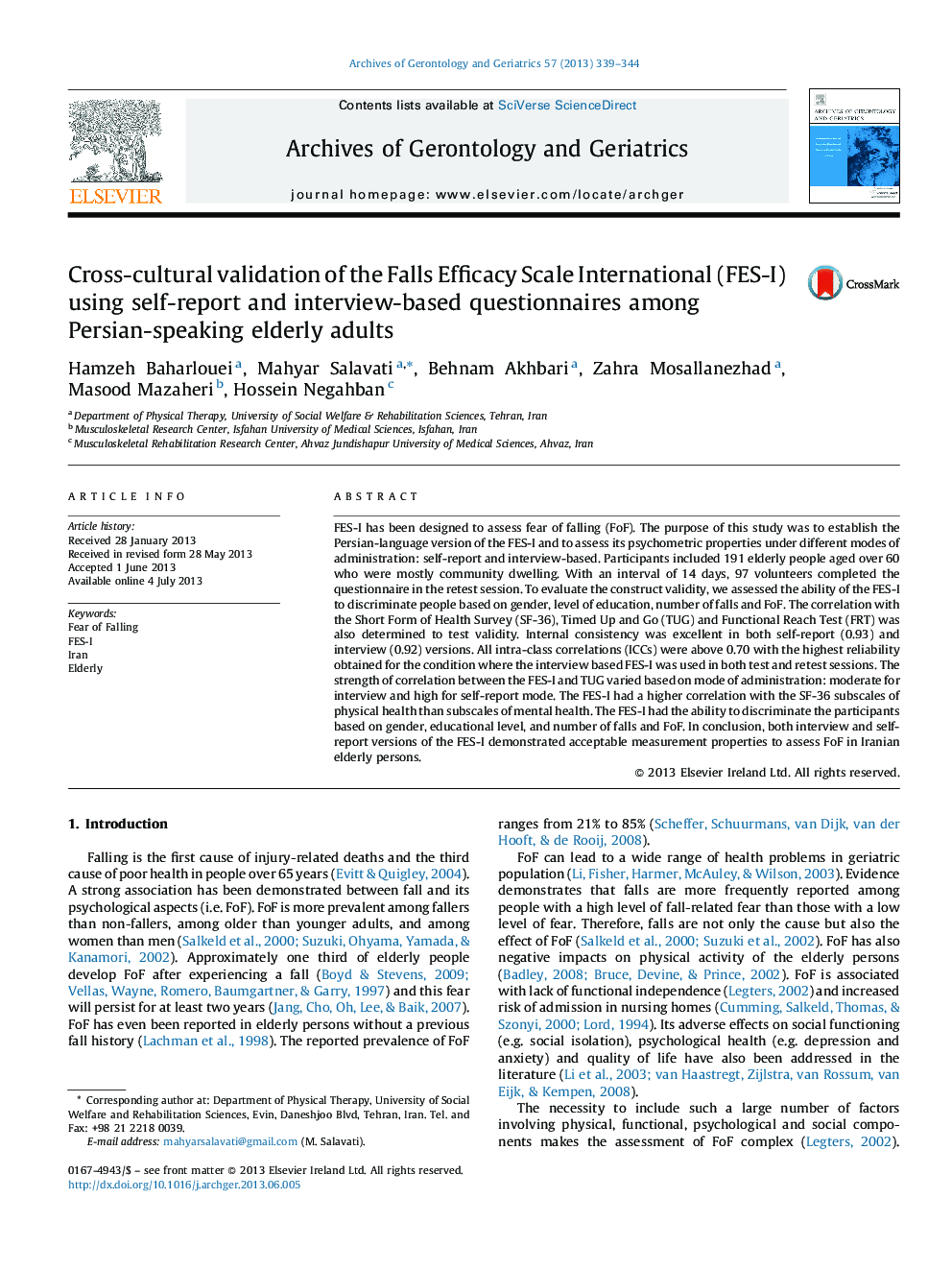| Article ID | Journal | Published Year | Pages | File Type |
|---|---|---|---|---|
| 1903217 | Archives of Gerontology and Geriatrics | 2013 | 6 Pages |
FES-I has been designed to assess fear of falling (FoF). The purpose of this study was to establish the Persian-language version of the FES-I and to assess its psychometric properties under different modes of administration: self-report and interview-based. Participants included 191 elderly people aged over 60 who were mostly community dwelling. With an interval of 14 days, 97 volunteers completed the questionnaire in the retest session. To evaluate the construct validity, we assessed the ability of the FES-I to discriminate people based on gender, level of education, number of falls and FoF. The correlation with the Short Form of Health Survey (SF-36), Timed Up and Go (TUG) and Functional Reach Test (FRT) was also determined to test validity. Internal consistency was excellent in both self-report (0.93) and interview (0.92) versions. All intra-class correlations (ICCs) were above 0.70 with the highest reliability obtained for the condition where the interview based FES-I was used in both test and retest sessions. The strength of correlation between the FES-I and TUG varied based on mode of administration: moderate for interview and high for self-report mode. The FES-I had a higher correlation with the SF-36 subscales of physical health than subscales of mental health. The FES-I had the ability to discriminate the participants based on gender, educational level, and number of falls and FoF. In conclusion, both interview and self-report versions of the FES-I demonstrated acceptable measurement properties to assess FoF in Iranian elderly persons.
